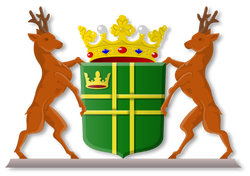How can local municipalities benefit from international cooperation? Focus on healthy Aging
|
This research was conducted by:
Lisan Assen, Andrea Dimitriu, Ronan Shenhav, Joyce WIllemsen Unfortunately, it is not (yet) possible to download this research.
For an example of a complete research, please click here. |
What was this research about?
A globalising world has brought new problems for local governance, but has also offered new opportunities. Local governments adapt to their environment to be able to sustain their levels of service. This has caused local governments to look beyond their own countries. Where neighbouring areas can only offer limited assistance, there is inspiration to be found abroad. And as borders become less important, especially in the European Union, this is becoming increasingly easier to facilitate. There are now many existing frameworks and ways through which international cooperation can be achieved. However, this kind of interaction is often not undertaken for fear of dissipating investment in the face of uncertain results. This is in spite of the potentially positive results for municipalities, their inhabitants as well as for development in general. This paper aims to clarify the possible international opportunities for municipalities by answering the question: what are the effects of cross-border cooperation for municipalities and in what way can they strengthen their international policy? The focus of this research is on the EU and in particular the case of the municipality of Aa en Hunze, in the Dutch province of Drenthe. This small municipality has to deal with issues that are characteristic for many small municipalities in (Western) Europe. At the same time it also has its own specific needs that need to be attended to. The municipality of Aa en Hunze already has a strong international policy, but can improve this even more. The positive and negative results of the international activities of this municipality can be used as an example for other Dutch or European municipalities. This paper strives to help those municipalities and the welfare of their citizens, by addressing the benefits and possibilities of international engagement. In order to clarify these benefits and possibilities, this research investigates inter-municipal cooperation from several perspectives. First, a clarification is made of what the situation of municipal international policy is at this moment, how dedicated municipalities are in engaging in this and why they are participating. Ways in which international cooperation can be beneficial in theory are elaborated upon: economic, technical and organisational cooperation, policy exchange, and international understanding, as well as the possible obstacles and pitfalls that may arise. Then, focus is on a different level on which a municipality can act to acquire or extend the benefits of international engagement: through bilateral partnerships, multilateral international networks and through the EU. Thirdly, the case of Aa en Hunze is examined. By looking at the characteristics and specific needs of this municipality it is possible to analyse what kind of action is most suitable for it. Opportunities for learning and for cooperation are investigated in different policy fields, with a focus on dealing with an ageing population in a rural area (‘healthy aging’). It is made clear how a small municipality can benefit from international cooperation in these specific fields. Lastly, this research make recommendations to the municipality of Aa en Hunze and other local governments in general. |



